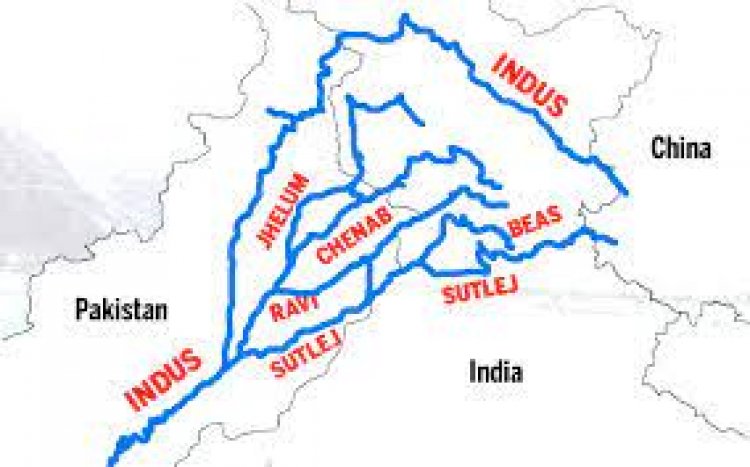India - Pakistan: INDUS Waters Treaty - Need to Renegotiate to Mitigate Impact of Climate Change
STORIES, ANALYSES, EXPERT VIEWS

India and Pakistan share waters of the Indus basin as per the Indus Waters Treaty (IWT). This agreement, facilitated by the World Bank, completed 63 years of its existence last week. The newer emerging concerns around climate call for bilateral cooperation beyond the treaty. Accordingly, in January this year, India announced that it wanted to renegotiate the treaty under Article XII (3) of the IWT to take into account a changed environmental and geopolitical situation, rather than work within what it saw as an outdated framework.
Features of the Indus river system
The Indus river system, primarily nourished by precipitation and snow/glacier melt in the high-mountain ranges of Tibet-China, North-West India, northeast Afghanistan and north Pakistan, is one of the largest irrigation systems in the world with a drainage area of about 112 million hectares and an irrigated command area of over 26 million hectares. The water flowing through it (estimated to be constituted by around 32 per cent glacier melt, 40 per cent snowmelt and 28 per cent rainwater during peak stream flow) is vital for existing hydropower projects, with massive untapped potential across its headwater tributaries, and for agricultural production in valleys and downstream arable lands. The Indus river waters play a crucial role in the prosperity and growth of national economies and livelihoods of over 300 million inhabitants in Afghanistan, India and Pakistan.
However, writes Lt Gen PK Grover (retd) “water, food and energy security in this region is inextricably linked with sustainable water supply in the Indus basin, which is prone to alteration by climate change and the increasing needs of a rapidly growing population, besides socio-economic development and ecosystem services. According to estimates, the Indus basin will lose up to 8.4 per cent of its total water resources by 2050. Experts simultaneously suggest that the rate of recession of glaciers will be hastened further in case of any increase in global temperatures.”
Major impact of climate change
The former General takes “a deeper look and analysis of the major impact of climate change as experienced by the Indus basin are imperative. These include:
Reduced snowmelt and glacier melt: The Indus basin is heavily reliant on snowmelt and glacier melt for its water supply. However, climate change is causing these sources of water to decline. This is leading to water shortage, which is already being felt in some parts of the basin.
Increased flooding: Climate change is also causing more extreme weather events, such as floods. These floods can cause widespread damage and displacement.
Changes in precipitation patterns: Climate change is causing rainfall patterns to change leading to more frequent and erratic rainfall and droughts. Such changes are making it difficult to plan for water management in the basin.
Increased water pollution: Climate change is also making it more difficult to manage water pollution as warmer temperatures and changing precipitation patterns are leading to the growth of algae blooms and other forms of pollution.
Flood damage
According to experts, the area, because of its geographic diversity, has grown extremely vulnerable to floods due to the impact of faster glacial melting in the north, increase in the frequency of droughts, and higher flood risks and salinity levels in the Indus river delta. Pakistan has experienced a high incidence of deadly floods. The devastating floods of July-August 2022 led to more than one-third of the country being inundated, driving millions from their homes. Since then, Pakistan has been reeling under the after-effects, suffering food shortage as well as outbreaks of waterborne diseases.
Experts therefore, suggest the need to renegotiate the IWT to begin tune with climate change responses.
















